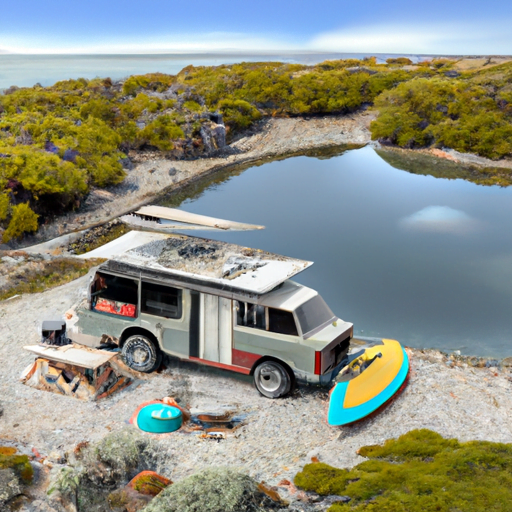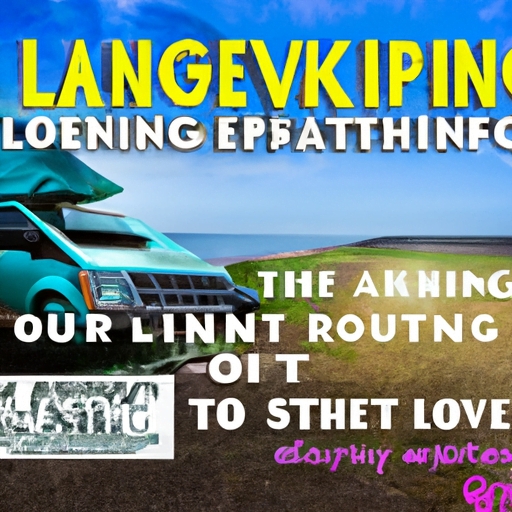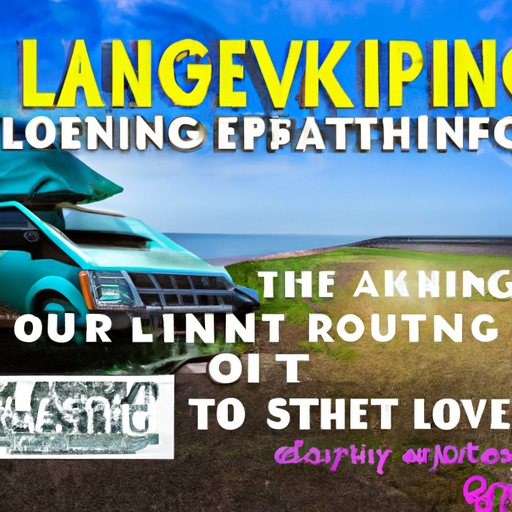Have you ever wondered what it would be like to live off grid in a van in Australia? It may seem like a far-fetched idea, but with the right knowledge and preparation, it can actually be a fulfilling and sustainable lifestyle. In this article, we will discuss the essential tips for living off grid in a van in Australia, so if you’re interested in exploring this alternative way of living, keep reading!
Living off grid means disconnecting from traditional utilities such as electricity, water, and waste disposal systems. Instead, you rely on renewable energy sources, collect rainwater, and practice sustainable waste management. When it comes to living in a van in Australia, there are a few challenges to overcome, including extreme temperatures and finding suitable places to park and camp. However, with the right preparations and mindset, it is definitely possible to live comfortably and enjoyably off grid.
In this article, we will dive into the essentials of off grid living in a van in Australia. We will discuss how to set up your van for self-sufficiency, including installing solar panels and a water filtration system. We will also provide tips on finding suitable places to park and camp, as well as how to stay cool in the summer and warm in the winter. By the end of this article, you will have a comprehensive understanding of what it takes to live off grid in a van in Australia. So, if you’re ready to embark on this unique adventure, let’s get started!

Essential Tips for Living Off Grid in a Van in Australia
Living off grid in a van can be an amazing adventure, offering the freedom to explore the beautiful landscapes of Australia while enjoying a sustainable lifestyle. However, transitioning to this alternative way of living requires careful planning and preparation. In this article, we will provide you with essential tips on how to live off grid in a van in Australia, covering everything from choosing the right van to navigating legalities and ensuring a comfortable and sustainable lifestyle on the road.
Choosing the Right Van
Consider the Size and Layout
When selecting a van for off grid living, it is important to consider the size and layout that best suits your needs. Depending on your living requirements and the number of people traveling with you, you may opt for a larger van with additional living space or a smaller, more compact van for a minimalist lifestyle. Take into consideration the layout of the van, ensuring it provides functional and comfortable living quarters.
Check for Mechanical Reliability
Mechanical reliability is crucial when living off grid in a van. Before making a purchase, thoroughly inspect the van’s mechanical condition, checking for any signs of wear and tear or potential maintenance issues. It is recommended to have a professional mechanic conduct a full inspection and provide you with peace of mind that the van is mechanically sound.
Ensure Adequate Storage Space
Storage space is essential when living off grid in a van. Consider the amount of personal belongings, equipment, and supplies you will need to carry with you, such as camping gear, food, and water. Choose a van that offers ample storage options, including cabinets, drawers, and compartments, to ensure you have enough space to store your belongings efficiently and keep your living area organized.
Preparing Your Van for Off Grid Living
Install Solar Panels
One of the most important aspects of off grid living is harnessing renewable energy. Installing solar panels on the roof of your van is a great way to generate electricity and power your appliances and devices. Solar panels can charge your batteries during the day and provide a sustainable power source for your off grid lifestyle.
Create a Water System
Having access to clean water is essential for off grid living. Create a water system in your van, consisting of water storage tanks, a water pump, and a filtration system. This will ensure you have a sufficient supply of fresh water for drinking, cooking, and cleaning. Additionally, consider collecting rainwater as an alternative water source.
Insulate the Van for Climate Control
Insulating your van is important for maintaining a comfortable living environment, regardless of the outside weather conditions. Proper insulation ensures that the temperature inside the van remains stable, keeping it cooler in hot weather and warmer in colder climates. This will reduce the reliance on heating and cooling devices and help conserve energy.
Managing Power Consumption
Calculate Your Power Needs
Understanding your power consumption is essential when living off grid in a van. Calculate your power needs by identifying the appliances and devices you will be using and their respective power requirements. This will help you determine the size of your solar panel system and battery bank, ensuring you have enough power to meet your needs.
Invest in Energy-Efficient Appliances
Choosing energy-efficient appliances is crucial for off grid living. Opt for appliances that have low power consumption, such as LED lights, energy-efficient refrigerators, and portable cookers. These appliances will help reduce your overall power consumption, allowing your solar panels to meet your energy needs more effectively.
Practice Smart Power Usage
Managing your power consumption wisely is key to living off grid sustainably. Be mindful of your energy usage and practice smart power usage habits. Turn off lights and appliances when not in use, use natural lighting during the day, and prioritize the use of energy-intensive appliances during daylight hours to take advantage of solar power generation.

Water Management
Find Reliable Water Sources
When living off grid, finding reliable water sources is essential. Research and identify potential water sources along your route or at your planned destination, such as public water filling stations, natural springs, or campsites with water availability. This will ensure you have a consistent supply of water for your daily needs.
Install Water Filtration System
Installing a water filtration system in your van is crucial for access to clean and safe drinking water. There are various options available, including portable water filters or gravity-based filtration systems. These systems remove impurities and contaminants, ensuring you have access to clean drinking water even in remote locations.
Practice Water Conservation
Conserving water is important when living off grid. Adopt water-saving habits such as taking shorter showers, using water-efficient appliances, and reusing graywater for non-potable purposes like watering plants or cleaning. Being mindful of your water usage will not only help you extend your water supply but also minimize the impact on the environment.
Food Storage and Preparation
Choose Non-Perishable Foods
When living off grid in a van, it is important to choose non-perishable foods that have a longer shelf life. Canned goods, dried fruits and vegetables, pasta, and rice are great options as they do not require refrigeration and can be stored for longer periods. This will minimize the need for frequent grocery trips and help you maintain a well-stocked pantry.
Invest in Portable Cooking Equipment
Investing in portable cooking equipment is essential for preparing meals on the road. Options such as portable gas stoves, camping grills, and compact ovens allow you to cook a variety of meals efficiently. Ensure you have adequate fuel supply for your cooking equipment, whether it’s gas canisters or small propane tanks.
Implement Efficient Food Storage Solutions
Proper food storage is essential when living off grid. Use a combination of different storage options, such as airtight containers, coolers, and vacuum-sealed bags, to keep your perishable and non-perishable food items fresh for a longer period. Utilize the limited space in your van efficiently, organizing your pantry and fridge strategically.
Keeping Cool and Warm
Use Ventilation Techniques for Cooling
Staying cool inside your van during hot summer days is crucial. Utilize ventilation techniques such as opening windows strategically to create cross ventilation and allow air circulation. You can also install roof vents or utilize fans to promote airflow within the van. Additionally, park in shaded areas whenever possible to minimize direct sunlight exposure.
Insulate the Van for Heating
Preparing your van for colder climates requires proper insulation. Insulating the walls, floor, and ceiling of your van will help retain heat and keep the interior warmer during colder seasons. Use insulating materials such as foam or reflectix to reduce heat loss and create a comfortable living environment.
Utilize Portable Heating and Cooling Devices
Portable heating and cooling devices can be a lifesaver when living off grid in extreme weather conditions. Invest in energy-efficient portable heaters or portable air conditioning units to maintain a comfortable temperature inside your van. Make sure they have low power consumption and are safe for use in confined spaces.
Maintaining Hygiene and Sanitation
Install a Portable Toilet
Installing a portable toilet in your van is essential for maintaining hygiene and sanitation. Portable toilets are compact and easy to use, providing a convenient solution for bathroom needs. Choose a toilet that is easy to clean and dispose of waste properly following local regulations.
Set Up an Outdoor Shower System
Being able to shower on the road is important for personal hygiene. Set up an outdoor shower system, using a portable camping shower or a solar shower bag. These solutions allow you to have a refreshing shower while minimizing water usage. Opt for biodegradable soaps to minimize the impact on the environment.
Practice Proper Waste Disposal
Proper waste disposal is crucial when living off grid to minimize your impact on the environment. Dispose of your waste responsibly by using designated waste disposal facilities, recycling whenever possible, and avoiding littering. Be mindful of local regulations and guidelines regarding waste disposal in each area you visit.
Staying Connected and Entertained
Invest in Reliable Internet Connectivity
Staying connected to the outside world is important, even when living off grid. Invest in reliable internet connectivity options such as mobile hotspots or satellite internet systems. These will enable you to stay connected, work remotely if needed, and keep in touch with loved ones while on the road.
Consider Entertainment Options
Entertainment is key to a fulfilling off grid lifestyle. Consider portable entertainment options such as e-books, portable music players, board games, or outdoor sports equipment. Embrace the opportunity to disconnect from technology and enjoy nature, but also have options for entertainment during downtime.
Stay Connected with Nature
Living off grid in a van allows you to immerse yourself in nature. Embrace this opportunity by exploring national parks, hiking trails, and beautiful landscapes Australia has to offer. Connect with nature through activities such as hiking, bird watching, photography, or stargazing. Take care to leave no trace and respect the environment during your adventures.
Navigating Legalities and Regulations
Research Camping and Parking Laws
Before embarking on your off grid van life journey, research the camping and parking laws in Australia. Be familiar with the regulations regarding camping in specific areas, the duration of stay, and any permits or fees required. This will prevent any legal issues and ensure a smooth and enjoyable experience.
Obtain Necessary Permits and Licenses
Certain areas or activities may require permits or licenses when living off grid in a van. Research and obtain any necessary permits, such as fishing permits or national park entry permits, in advance. This will allow you to fully enjoy the natural wonders of Australia without any legal complications.
Be Aware of Environmental Guidelines
Respecting the environment is crucial when living off grid. Be familiar with environmental guidelines and regulations, such as fire restrictions, waste management practices, and protected species conservation. Ensure that your activities do not harm the environment and follow best practices for sustainable living.
Conclusion
Successfully transitioning to off grid living in a van in Australia requires careful planning and preparation. By following these essential tips, you can create a comfortable and sustainable lifestyle on the road. Embrace the freedom and adventure that comes with living off grid in a van, while respecting the environment and regulations. Good luck on your off grid van life journey!




